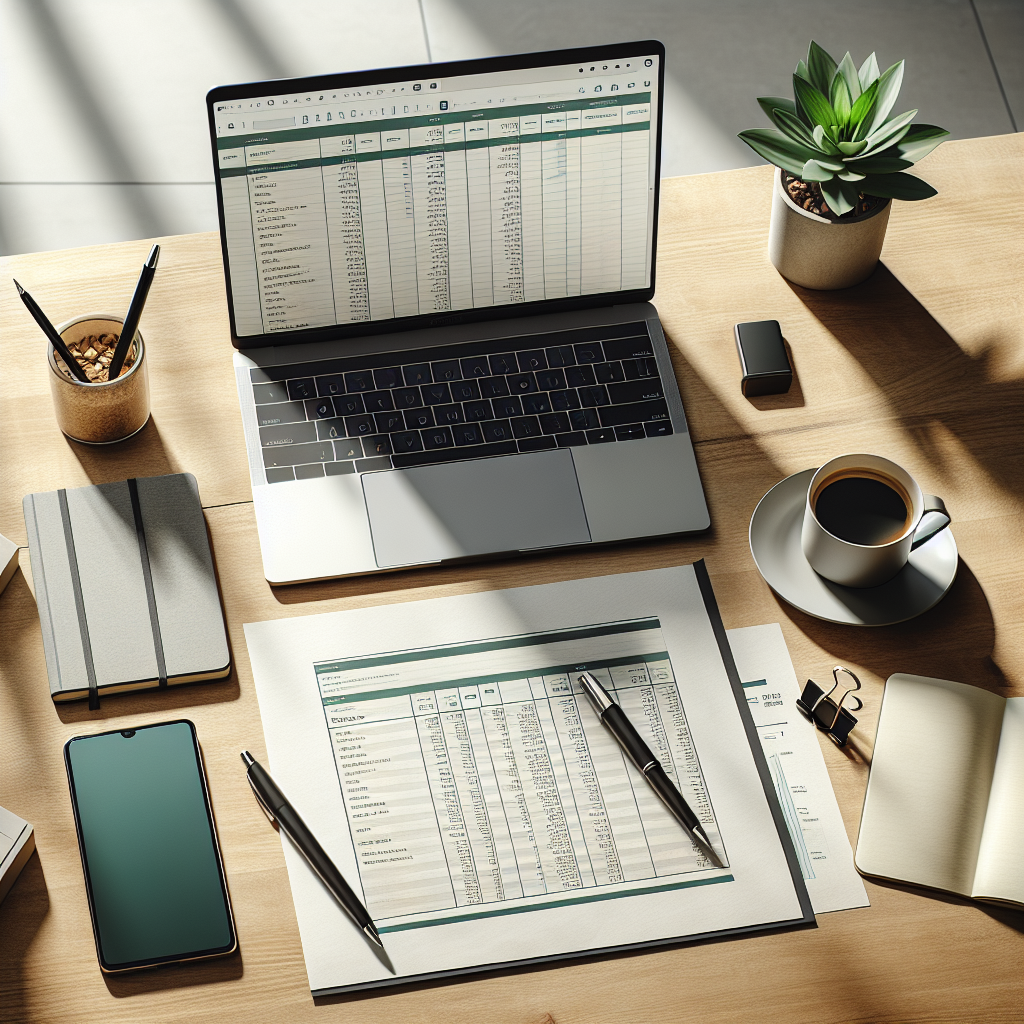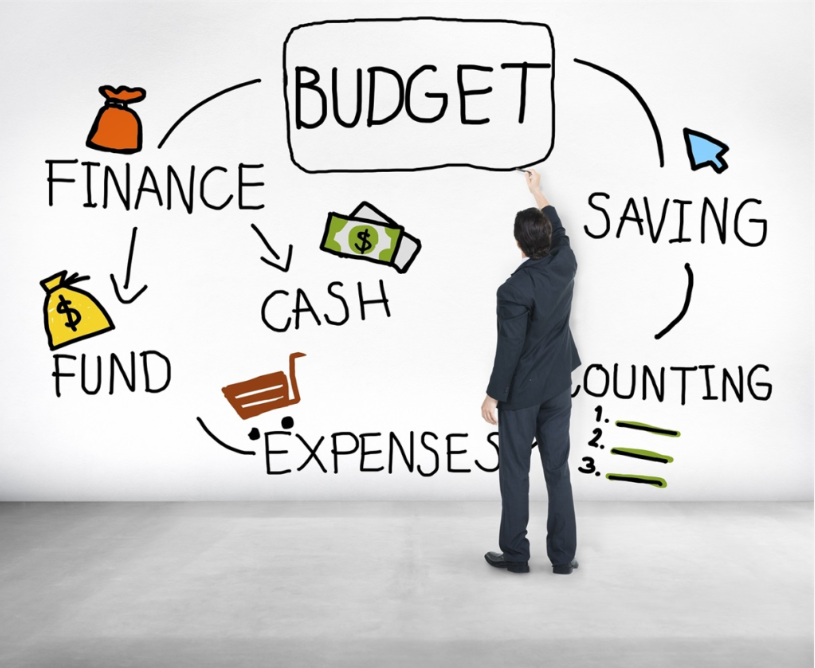Explore top budgeting apps that simplify tracking finances and enhance money management for everyone.
Budget tracking is a fundamental aspect of personal and business finance management. It refers to the process of recording, monitoring, and analyzing your income and expenses to ensure that you stay within your financial means. By keeping a close eye on your financial transactions, you can make informed decisions that align with your short-term and long-term financial goals.
At its core, budget tracking involves creating a budget plan, which is essentially a roadmap for how you intend to allocate your money. This plan typically includes categories such as housing, utilities, groceries, transportation, entertainment, and savings. By tracking your spending in each category, you can identify areas where you may be overspending and adjust your habits accordingly.
One of the primary *benefits* of budget tracking is that it promotes *financial awareness*. When you know exactly where your money is going, you are more likely to make conscious spending choices and avoid unnecessary debt. Additionally, budget tracking can help you build an emergency fund, save for significant purchases, and invest for the future.
With the advent of modern technology, budget tracking has become more accessible and convenient than ever before. Financial technology platforms like *Vala* offer innovative tools and personalized solutions to help you manage your budget effortlessly. These platforms can automate the tracking process, provide real-time insights, and even suggest ways to optimize your spending.
Ready to take control of your finances and experience effortless savings? Download Vala today and start managing your budget with ease!
Understanding What Budget Tracking Is
Budget tracking is an essential practice that involves systematically monitoring your income and expenditures to ensure you are living within your means and working towards your financial goals. At its most basic level, budget tracking involves recording every financial transaction you make, categorizing these transactions, and then comparing them against a pre-determined budget.
The process starts with creating a budget, which is a financial plan that outlines your expected income and allocates it towards various expenses and savings. Common categories in a budget include housing, food, transportation, healthcare, entertainment, and savings. By tracking your spending in each category, you can see whether you are sticking to your budget or overspending in certain areas.
Effective budget tracking provides several *critical insights*. First, it helps you understand your spending habits, revealing patterns and areas where you might be able to cut back. Second, it keeps you accountable and encourages responsible financial behavior. Lastly, it enables you to make data-driven adjustments to your budget, ensuring that you are continually moving towards your financial objectives.
In today’s digital age, budget tracking has been revolutionized by financial technology. Tools and apps simplify the tracking process by automatically categorizing transactions, providing visual representations of your spending, and even offering personalized advice. These tools can be incredibly *beneficial* as they reduce the manual effort involved in budget tracking, making it easier to stay on top of your finances.
Key Benefits Of Budget Tracking

Engaging in budget tracking offers numerous *significant benefits* that can transform your financial health and overall well-being. Here are some key advantages:
- Financial Awareness: By tracking your budget, you gain a clear and detailed understanding of your income and expenses. This heightened awareness allows you to make more informed financial decisions and avoid unnecessary spending.
- Expense Management: Budget tracking helps you identify areas where you might be overspending. With this insight, you can adjust your spending habits and allocate your resources more effectively, ensuring that your money is spent on what truly matters.
- Goal Achievement: When you have a budget in place and actively track it, you are more likely to achieve your financial goals. Whether it’s saving for a vacation, buying a home, or building an emergency fund, budget tracking keeps you focused and motivated.
- Debt Reduction: For those struggling with debt, budget tracking is a powerful tool. By clearly seeing where your money goes, you can allocate more funds towards paying off debt, ultimately reducing your financial burdens and interest payments.
- Stress Reduction: Financial stress is a common issue for many individuals and families. Budget tracking can alleviate this stress by providing a clear plan and reducing the uncertainty around your finances. Knowing exactly where your money is going can give you peace of mind.
- Improved Savings: Regularly tracking your budget encourages you to set aside money for savings. Over time, this practice can significantly boost your savings and help you prepare for future financial needs.
Incorporating budget tracking into your financial routine can yield these and many other benefits, making it an indispensable practice for anyone looking to improve their financial health.
How To Implement Budget Tracking

Implementing budget tracking may seem daunting at first, but with a structured approach, it becomes a manageable and rewarding task. Here are the steps to get started:
- Set Clear Financial Goals: Begin by identifying what you want to achieve with your budget. Whether it’s saving for a major purchase, paying off debt, or building an emergency fund, having clear goals will guide your budgeting efforts.
- Track Your Income: Document all sources of income, including your salary, freelance work, and any other earnings. This gives you a comprehensive view of your financial inflows.
- List Your Expenses: Categorize your expenses into fixed (rent, utilities, loan payments) and variable (groceries, entertainment, dining out). This helps you see where your money is going and identify potential areas for savings.
- Create a Budget Plan: Based on your income and expenses, create a budget plan that allocates funds to each category. Be realistic about your spending habits and ensure that your plan aligns with your financial goals.
- Utilize Budget Tracking Tools: Take advantage of budget tracking apps and platforms like *Vala* to simplify the process. These tools can automatically categorize expenses, provide insights, and help you stay on track.
- Monitor and Adjust: Regularly review your budget to see if you are adhering to your plan. Make adjustments as needed to accommodate changes in income or unexpected expenses. Consistent monitoring ensures that you stay aligned with your goals.
- Stay Disciplined: Budget tracking requires discipline and commitment. Stick to your plan, avoid impulse purchases, and continually remind yourself of your financial goals.
By following these steps, you can effectively implement budget tracking and take control of your finances. Remember, the key is consistency and a willingness to adapt as your financial situation evolves.
Tools And Apps For Effective Budget Tracking

In the digital age, numerous tools and apps are available to streamline the process of budget tracking, making it easier and more efficient. Here are some of the most effective options you can use:
- Vala: Our platform offers a seamless way to manage your savings and expenses. *Vala* provides personalized solutions, intuitive budgeting features, and real-time expense tracking to help you stay on top of your financial goals.
- Mint: This popular app allows you to connect your bank accounts, credit cards, and bills to get a complete picture of your finances. Mint categorizes transactions, tracks your spending, and offers insights on how to save money.
- YNAB (You Need a Budget): YNAB is designed to help users break the paycheck-to-paycheck cycle and save more money. It offers a proactive approach to budgeting, encouraging users to allocate every dollar to a specific purpose.
- Personal Capital: Ideal for those looking to manage both their budget and investments, Personal Capital offers tools to track spending, plan for retirement, and monitor investment performance.
- Goodbudget: Based on the envelope budgeting method, Goodbudget helps users allocate funds to different spending categories. It’s great for couples and families who want to manage their finances together.
- Wally: This app provides a simple and intuitive interface for tracking expenses and setting financial goals. Wally supports multiple currencies, making it ideal for travelers and expatriates.
- PocketGuard: PocketGuard connects to your bank accounts and provides a clear overview of your spending. It helps you identify how much disposable income you have after covering bills and necessities.
These tools and apps not only make budget tracking more manageable but also offer valuable insights and features that can help you achieve your financial objectives. By leveraging technology, you can simplify your budgeting process, save time, and stay motivated on your journey to financial health.
Common Challenges And Solutions In Budget Tracking

Despite the benefits of budget tracking, many individuals encounter common challenges that can hinder their financial progress. Here are some of these challenges along with practical solutions:
- Irregular Income: For those with fluctuating incomes, such as freelancers or commission-based workers, predicting monthly earnings can be difficult. Solution: Create a baseline budget based on your lowest expected income and adjust for higher earnings as they come.
- Unplanned Expenses: Unexpected costs, such as medical bills or car repairs, can disrupt your budget. Solution: Maintain an emergency fund to cover unforeseen expenses, ensuring your budget remains intact.
- Overspending: It’s easy to overspend, especially with credit cards. Solution: Use budgeting apps like *Vala* to set spending limits and receive alerts when you approach them, helping you stay disciplined.
- Lack of Time: Tracking every expense can be time-consuming and tedious. Solution: Automate the process with tools that sync with your bank accounts and categorize transactions for you.
- Inconsistent Tracking: Inconsistency can lead to inaccurate financial data. Solution: Set a regular schedule for reviewing your budget, whether it’s weekly or monthly, to ensure you stay on track.
- Unrealistic Goals: Setting overly ambitious financial goals can lead to frustration. Solution: Establish achievable milestones and gradually increase your savings targets as you adapt to your budget.
By addressing these challenges with practical solutions, you can enhance the effectiveness of your budget tracking efforts. Remember, consistency and patience are key to mastering your finances and achieving long-term stability.
Ready to take control of your finances and experience effortless savings? Download Vala today and start managing your budget with ease!







